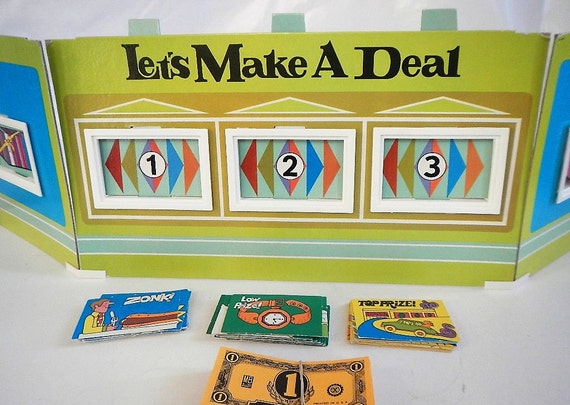friendly_iconoclast
friendly_iconoclast's JournalACLU:Leaked DHS Report Uses Junk Science to Argue for Surveillance of Muslims
https://www.aclu.org/blog/national-security/discriminatory-profiling/leaked-dhs-report-uses-junk-science-argueFebruary 7, 2018 | 3:15 PM
A recent draft report from the Department of Homeland Security called for the discriminatory surveillance of Sunni Muslims in the United States.
The report originated in U.S. Customs and Border Protection’s Office of Intelligence and was obtained and published by Foreign Policy magazine. It “examines 29 perpetrators of 25 terrorist incidents in the United States” that CBP “assesses were driven by radical Sunni Islamist militancy.” It concludes, based on the “common demographics” of those in the study, that the government should “continuously evaluate” those with similar characteristics in order to identify “individuals who might have a higher risk of becoming radicalized.” A CBP spokesperson stated that the report was an initial draft and has since been revised.
The report is nonetheless alarming. First, let’s dispense with the euphemisms: When CBP calls for “vetting,” “recurrent screening,” and “on-going evaluations,” it is talking about long-term surveillance. And that surveillance would be nakedly discriminatory: The report focuses exclusively on Sunni Muslims in the United States and identifies religion and national origin in the “Middle East, South Asia or Africa” as reasons to “continuously evaluate” those who meet the profile. It also oozes religious animus, referring without evidence or explanation to “the long-term difficulty for some Muslim immigrants to integrate into U.S. society,” and casting particular suspicion on “Muslim converts.”
Because this bias is baked into the report, its conclusions are nonsensical from a scientific standpoint. It analyzes only incidents involving what it calls “radical Sunni Islamist militancy” — ignoring other significant drivers of attacks, like violent right-wing extremism. It then concludes that those with characteristics similar to the 29 perpetrators should be surveilled. And even using this absurdly limited data set, the report still can’t identify meaningful trends or commonalities, leaving only what the attackers in the analysis shared: their Sunni Muslim identity. In other words, the report assumes its own conclusion, that Sunni Muslims, by virtue of their religion, should be subject to heightened surveillance. That’s the empirical equivalent of a dog chasing its own tail...
The original FP article can be found here:
http://foreignpolicy.com/2018/02/05/draft-dhs-report-surveillance-of-muslim-immigrants/
What could be done differently about gun control that would actually work?
To be blunt, over the last 20 or so years most of the now-extant gun control .orgs have been about as effective
as pissing on a forest fire in terms of acheiving their stated goals (there have been a few that went under-
anyone remember The American Hunters and Shooters Association?)
It's gonna take more than wasting electrons agreeing with those who already agree with you to motivate the masses off
their asses
So I'll ask those reading this:
In your own words, what do you think ought to be done differently?
Dark Side: Secret Origins of Evidence in US Criminal Cases
A long read, but IMO well worth it
https://www.hrw.org/report/2018/01/09/dark-side/secret-origins-evidence-us-criminal-cases
Photo of the Drug Enforcement Administration's logo for their Special Operations Division:
 ?itok=-gcSaKOt
?itok=-gcSaKOt
Through a practice known as “parallel construction,” an official who wishes to keep an investigative activity hidden from courts and defendants—and ultimately from the public—can simply go through the motions of re-discovering evidence in some other way. For example, if the government learned of a suspected immigration-related offense by a person in Dallas, Texas, through a surveillance program it wished to keep secret, it could ask a Dallas police officer to follow the person’s car until she committed a traffic violation, then pull her over and start questioning her—and later pretend this traffic stop was how the investigation in her case started.
Due to parallel construction, defendants in criminal cases across the country may be experiencing serious infringements of their rights without their knowledge. The United States Constitution draws on lessons learned from the abuses of the British colonial era in placing firm restrictions on how the government can behave when it wants to prove someone has done something wrong. It establishes criteria for rights-respecting searches and seizures, requires the prosecution to turn over to the defense any evidence favorable to the accused, and demands that all trials and proceedings take place in accordance with “due process”—that is, fundamental fairness. However, parallel construction—when sustained through the end of proceedings—means defendants cannot learn about, and therefore cannot challenge, government actions that violate these or other rights.
In creating fictions to keep potentially questionable investigative activities out of sight, the government also avoids an important deterrent to official misconduct. When law enforcement or intelligence agencies break the law, judges typically prohibit prosecutors from introducing evidence that was obtained as a result of those illegal operations. This is one of the main incentives agents have to respect rights. Parallel construction removes this incentive by deliberately rendering those agents’ actions invisible to courts and defendants, and the resulting lack of accountability risks turning constitutional rights into little more than words on paper...
The full 81 page report is available as a PDF file at:
https://www.hrw.org/sites/default/files/report_pdf/us0118.pdf
Dark Side: Secret Origins of Evidence in US Criminal Cases
A long read, but IMO well worth it
https://www.hrw.org/report/2018/01/09/dark-side/secret-origins-evidence-us-criminal-cases
Photo of the Drug Enforcement Administration's logo for their Special Operations Division:
 ?itok=-gcSaKOt
?itok=-gcSaKOt
Through a practice known as “parallel construction,” an official who wishes to keep an investigative activity hidden from courts and defendants—and ultimately from the public—can simply go through the motions of re-discovering evidence in some other way. For example, if the government learned of a suspected immigration-related offense by a person in Dallas, Texas, through a surveillance program it wished to keep secret, it could ask a Dallas police officer to follow the person’s car until she committed a traffic violation, then pull her over and start questioning her—and later pretend this traffic stop was how the investigation in her case started.
Due to parallel construction, defendants in criminal cases across the country may be experiencing serious infringements of their rights without their knowledge. The United States Constitution draws on lessons learned from the abuses of the British colonial era in placing firm restrictions on how the government can behave when it wants to prove someone has done something wrong. It establishes criteria for rights-respecting searches and seizures, requires the prosecution to turn over to the defense any evidence favorable to the accused, and demands that all trials and proceedings take place in accordance with “due process”—that is, fundamental fairness. However, parallel construction—when sustained through the end of proceedings—means defendants cannot learn about, and therefore cannot challenge, government actions that violate these or other rights.
In creating fictions to keep potentially questionable investigative activities out of sight, the government also avoids an important deterrent to official misconduct. When law enforcement or intelligence agencies break the law, judges typically prohibit prosecutors from introducing evidence that was obtained as a result of those illegal operations. This is one of the main incentives agents have to respect rights. Parallel construction removes this incentive by deliberately rendering those agents’ actions invisible to courts and defendants, and the resulting lack of accountability risks turning constitutional rights into little more than words on paper...
The full 81 page report is available as a PDF file at:
https://www.hrw.org/sites/default/files/report_pdf/us0118.pdf
Profile Information
Member since: Fri Sep 8, 2006, 12:47 PMNumber of posts: 15,333
